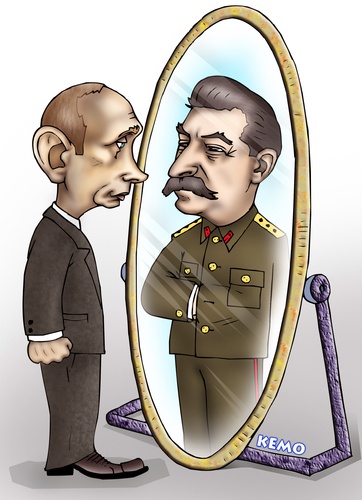 The war in Ukraine goes on and on. Though analysts are as numerous as flies on a heap of you know what, the truth is that one knows how it is going to end. Such being the case, I want to put my latest thoughts on record.
The war in Ukraine goes on and on. Though analysts are as numerous as flies on a heap of you know what, the truth is that one knows how it is going to end. Such being the case, I want to put my latest thoughts on record.
First, Putin may be a very bad man. However, there is no point in continually saying so. Based on historical reasoning, he is doing what he believes he must on behalf of his country. That historical reasoning itself is neither better nor worse than any other reasoning of this kind; part reality, part myth, part propaganda. Never mind. To cope with him, it is first of all necessary to understand what he thinks, why, and what can and cannot be done about it. The more so because he has enough nuclear weapons to blow up the world.
Second, this is a war of survival not only for Ukraine but for Russia as well. In the case of Ukraine, that is because defeat would reduce it to a Russian province. Much as it used to be since 1793 when Catherine the Great joined Austria and Prussia in partitioning Poland, a move which for the first time took Russia to the shores of the Black Sea. In the case of Russia it is because, should this struggle be lost, the country can expect to disintegrate into who knows many warring fragments. Just as happened in 1990. Recovery, even supposing it will be possible at all, will take decades. See, as an example of what it may be like, The Time of Troubles (1598-1613).
Third, this is going to be a long and bloody conflict. Albeit that it may have taken a little longer than was originally planned—not something at all unusual in war—the Russians have reached Ukraine’s most important cities and put them under siege. They have not, however taken them. As I have written before, urban warfare is perhaps the most difficult form of war an attacking force can engage on. Just think of the months-long battle of Stalingrad in 1942-43, and you’ll know what I mean.
Fourth, even if the Russians do succeed in occupying the cities, the war, taking the form of insurrection, guerrilla, and terrorism will go on. As, to mention but two recent examples, it did in both Afghanistan and Iraq. True Ukraine, being flat, does not present the best terrain on which to wage these forms of warfare. Compared to many others, the Russians also enjoy the important advantage of being able to understand the language. But two factors are working in the other direction. One is the sheer size of the country and the population, which threaten to swamp any occupying force (that is why, back in 1793, the Russians were able to occupy it in the first place was because it was practically uninhabited). The other, the ready availability of every kind of assistance from NATO, which can only increase as time goes on.
Fifth, Putin’s forces are said to be using some unorthodox weapons capable of causing many casualties and inflicting immense damage on buildings in particular. Particularly important are so called thermobaric weapons that operate by detonating a mixture of air and fuel, resulting in an extraordinarily powerful explosion as well as extremely high temperatures. But Putin is not the only one to use them. Americans did so both at Hue in 1968 and at Fallujah in December 2004; and both the Americans and the British used them in Afghanistan. So who are they to complain?
Sixth, whether Russia will break under the sanctions is uncertain. My own guess it that it won’t. Partly that because the Russians can take almost anything. And partly because Germany e.g depends on Russia for 51 percent of its oil and gas; without them, German industry will soon come to a standstill. Vice versa, the one certainty is that the war will break the economy of the Ukraine.
Seventh, the only way Putin can win this war is by finding some Ukrainians able and willing to set up a government that will collaborate with him. That, however, seems unlikely to happen.
Finally, in this war as in any other the first casualty is the truth. That is one reason why anyone who believes he can see into the future is welcome to try and so so.
